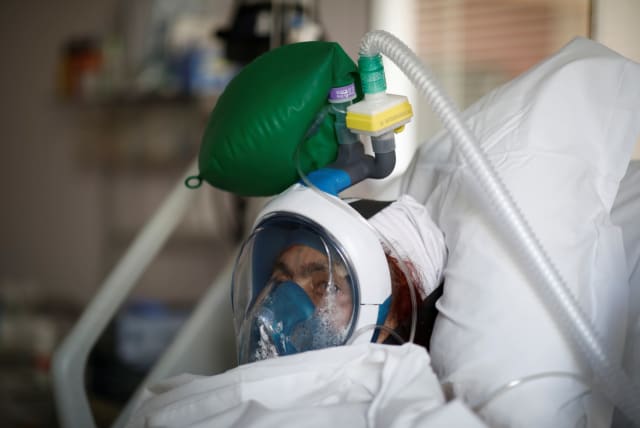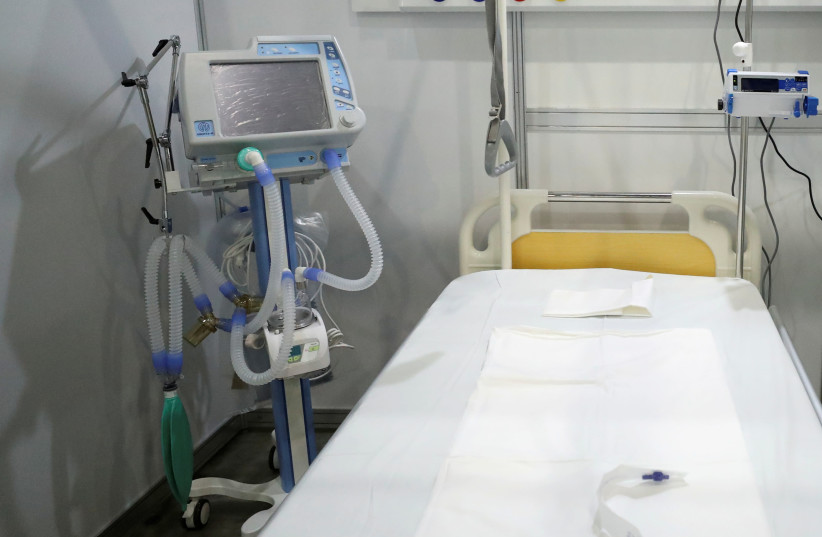Which ICU patients can successfully be detached from ventilators?

An Israeli study found that hand-grip strength in patients can predict how well they will handle being weaned from ventilation.
Testing the hand-grip strength of patients brought to hospital intensive care units can determine with high accuracy who will later be able to be weaned from ventilation or not, according to Israeli researchers.
The muscles of critical-care patients can become weaker after spending time on a ventilation tube and some will not be strong enough to breathe on their own as a result. A skilled physiotherapist has been required to determine whether each patient will be able to be weaned, and this takes time and is expensive for the hospital.
Removing a breathing tube at the right time is extremely important in reducing the illness and death rates of patients in the intensive care unit.
Writing in the latest issue of IMAJ, the Israel Medical Association Journal, Dr. Wafiq Amun of the Galilee Medical Center in Nahariya and Dr. Nasra Idilbi of the Emek Jezreel Valley College studied the problem and came to a conclusion. The article was entitled “Hand-Grip Strength as a Predictor for Success in Weaning from Ventilation.”
They studied 104 male and female patients who were alert and cooperative. Using a dynamometer to test hand-grip strength, the hospital staff found that those who had been weaned had a stronger grip than those that had failed to be able to breathe without ventilation. A total of 89 patients were able to be disconnected successfully.
Which patients had trouble being weaned from the ventilator?
Patients who were smokers were much less likely to be weaned. Those who had been taking steroid drugs were more likely to fail because these anti-inflammatory medications weaken muscles in the body including those involved in breathing, the researchers said. Patients who were disconnected from the tube but had to be reconnected were regarded as failures, while those who didn’t need a breathing tube again within three days were viewed as successes.
As men usually have more strength in their hands than women, it was not surprising that males had a higher average hand-grip strength. But despite that, no difference was found in the percentage of success in weaning from ventilators as predicted by the strength test. There may be differences in strength according to ethnic background, and this must be examined in future studies, they wrote.
They concluded that testing the hand for strength can help the medical staff to decide on extubation accurately at the right time without the need for a physiotherapist to examine the patient.
“The hand-grip test is low-cost, easy to perform, requires only one person without special training and does not endanger the patient in any way. A threshold value can be reached that will help the medical staff decide whether to extubate,” they concluded.
Jerusalem Post Store
`; document.getElementById("linkPremium").innerHTML = cont; var divWithLink = document.getElementById("premium-link"); if (divWithLink !== null && divWithLink !== 'undefined') { divWithLink.style.border = "solid 1px #cb0f3e"; divWithLink.style.textAlign = "center"; divWithLink.style.marginBottom = "15px"; divWithLink.style.marginTop = "15px"; divWithLink.style.width = "100%"; divWithLink.style.backgroundColor = "#122952"; divWithLink.style.color = "#ffffff"; divWithLink.style.lineHeight = "1.5"; } } (function (v, i) { });

